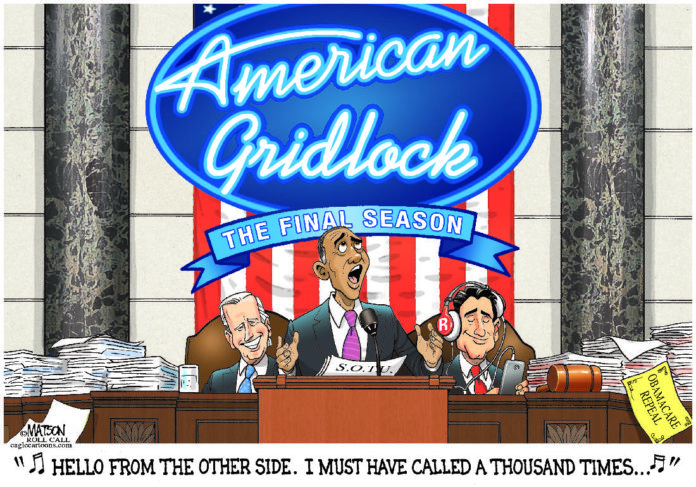BY VERN TURNER
 The cumulative effect of recent world events on my psyche produced enough incentive to write yet another summary of the human condition as I see it, and imagine what the pathway to the future looks like. Perhaps the most influential book on the subject of how we humans have gotten to this place in this time period is The Watchman’s Rattle by Rebecca Costa. Of all the people I interact with, I’ve found no one who has even heard of the author or the book. More the pity. Costa brings several threads of biology, evolution and sociology together in an elegant tapestry of understanding.
The cumulative effect of recent world events on my psyche produced enough incentive to write yet another summary of the human condition as I see it, and imagine what the pathway to the future looks like. Perhaps the most influential book on the subject of how we humans have gotten to this place in this time period is The Watchman’s Rattle by Rebecca Costa. Of all the people I interact with, I’ve found no one who has even heard of the author or the book. More the pity. Costa brings several threads of biology, evolution and sociology together in an elegant tapestry of understanding.
Costa includes a quote from Dr. E.O. Wilson, a Harvard biologist who Time magazine calls one of the 25 most important figures of the 20th Century. His summary of the paradox of human existence says, “The real problem of humanity is the following: We have paleolithic emotions, medieval institutions and god-like technology.”
The paradox is illustrated in various ancient civilizations that failed and they all failed for the same reasons and in the same way.
Ancient civilization performed marvelous feats of ingenuity and engineering to survive and thrive under certain, given conditions. The Mayans, for example built enormous, elaborate irrigation and water conservation structures that allowed for irrigation and farming to support populations numbering in the millions. Sadly, though, their work was designed for the “normal” conditions under which they thrived. Geological records, however, show a sustained period of drought of which the Mayans could not engineer their way out. So, instead of working toward new ways to preserve their way of life, they reached a cognitive threshold where they either couldn’t or wouldn’t make the necessary decisions to solve the coming problem. This period of gridlock is known as the cognitive threshold.
Upon reaching this threshold, the Mayans reverted to their belief system of deities and rituals to work their way out of the problem; they substituted beliefs for real solutions. Human and animal sacrifices took the place of engineering projects and group efforts to overcome the shrinking water supply. Instead of building more cisterns, they killed more virgins.
All the while, the Mayans were passing their problems on from one generation to the next until they could no longer sustain the large populations, cities and luxury of those good times. Of course, with the stress came the internecine wars that completed the task of destroying the civilization.
History also shows that societies advance quickly and thrive when their beliefs and knowledge work side-by-side to satisfy the human needs necessary. As complexities increase, there is a tendency to pass on the problems and to revert to un-proven fact-free beliefs, thus guaranteeing a cognitive threshold and its subsequent gridlock of solution development. Sound familiar?
Thom Hartmann’s book The Crash of 2016 is another chilling survey of our particular situation in the United States and the world in which we live. In it, Hartmann points out that we are on the brink of the fourth great crash of our economy and its subsequent war.
Thomas Jefferson predicted that periodic revolutions were necessary for any democratic society to flourish and grow. He also said that if the revolution were stalled or blocked, the ensuing crisis would be even more intense.
The pattern for the previous three crashes began with government gridlock followed by an economic meltdown followed by a terrible war followed by major reformation. The crash of 2016, according to Hartmann, will be the result of the current government gridlock we are now observing with jaundiced eyes.
He mentions the gridlock and economic meltdown leading to the Civil War, thus leading to a reformation of our nation, especially regarding slavery and so-called states rights. The Second World War was also preceded by gridlock [1920s] and a Great Depression. That depression, it should be noted, was worldwide.
The patterns defined by Costa and Hartmann have some things in common, namely gridlock [cognitive threshold] followed by the passing on of problems and increasing complexity to subsequent generations to solve. Except they don’t get solved.
We’ve all heard the memes about how technology will rescue us from all our ills, yet the reality of climate change is still ignored by those who flaunt their power over this and other issues, like fulfilling their Constitutional duties by filling the Supreme Court.
The resurgence of religious beliefs in our political discourse is a recapitulation of the Mayan collapse. Ted Cruz, for example, trots out his father who says he hears God’s voice telling him his son must become president of the United States. Now, rational people get it that this stuff gets most people into padded rooms and fed soft food, but Ted gets funded by the Koch Brothers who have a reformation of their own in mind: A free-market, theological oligarchy. That mouthful of words really describes the ultimate outcome for suspended problem solving in that it completely ignores all of history, the Constitution and how democratic economics work.
It is a reversion to times collected under the heading The Middle Ages. Instead of merely passing our current problems on to the coming generations of children, these guys want to pass on the same problems from centuries past that did little except redefine how to kill people and starve the rest.
There is no progress here, only regression. It is a total suspension of anything but beliefs of a system that has been proven over and over to not work.
This, I think, is the product of our stubbornness, fear and institutionalized ignorance brought to us by so-called conservative think-tanks that do not think, but promote fear instead and advocate only for the wealthy at the expense of the middle classes. If this isn’t a cognitive threshold of major proportions I don’t know what is.
Not only do these self-ordained elites intend to buy or force their way into our democracy, they also clearly intend to destroy the very thing that made us great to begin with: public education. How can we expect subsequent generations to solve increasingly complex problems when we’ve destroyed the mechanism by which to create the solutions?
The current political gridlock in the United States is a loud warning signal for the rest of the world – that unfettered capitalism is running amok and we are doing nothing to stop it. We cannot pray our way out of practical problems, poverty and ignorance. Beliefs don’t work when actual, physical action is required.
Decisions must be made to solve problems; waving incense pots and singing songs do not. Beliefs are a convenient abstraction, but real, actual difficulties like starvation, constant wars and a polluted planet require real, actual actions and solutions.
The energy issues, for example, already have the necessary technology to get this generation off of fossil fuels. It’s the gridlock of the capitalists buying governments around the world that prevent the implementation of solutions.
We, unlike the Mayans, can see and understand what is coming and our technology has determined how those problems can be ameliorated. It’s our will to do so that will determine whether we will once again succumb to our primitive nature of small tribe behaviors and face another collapse.
If we choose to remain in gridlock for political posturing, ideological fantasy or religious perfidy, we will most certainly face our own mortality.
There are now almost eight billion of us and we are becoming increasingly interdependent. An interesting question might be: How many humans will survive the next crash and great war?
– Vern Turner lives in Marble Falls, TX and is a regular contributor to The Oklahoma Observer. His latest book, Racing to the Brink: The End Game for Race and Capitalism, is available through Amazon.com.







